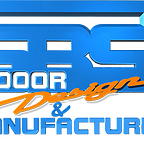[Blog] Unlocking the Past: A Journey Through the History of Locks
Locks have played an essential role in safeguarding our belongings, providing security, and maintaining privacy for centuries. The history of locks is a fascinating tale of ingenuity, craftsmanship, and the constant pursuit of better security measures. In this blog post, we’ll delve into the origins of locks, their purposes, and the innovations that have shaped their evolution.
When Were Locks Invented?
The concept of locks dates back to ancient civilizations, with evidence suggesting that locks were used by the Egyptians as early as 4,000 years ago. These early locks were remarkably simple yet effective. They consisted of wooden pins and a wooden key that lifted the pins to allow the lock’s mechanism to disengage.
The First Form of Lock The earliest known lock design resembling what we recognize today was the Egyptian pin lock. This simple yet effective mechanism utilized a series of pins of varying lengths that prevented the lock from opening unless a specific key was inserted to align the pins perfectly. This concept laid the foundation for future lock designs, inspiring locksmiths to experiment and improve upon the basic principle.
A common misconception that has been around is that the Greeks invent the lock. While the Greeks did not invent locks per se, they did contribute significantly to their development. Greek engineers and inventors explored mechanisms involving bolts and keys, paving the way for later innovations. However, the true evolution of locks occurred during the medieval era in Europe, where locksmiths and craftsmen honed their skills and improved upon existing designs.
The Original Use of Locks
Initially, locks served practical purposes such as securing valuable goods and protecting treasured possessions. Ancient Roman and Chinese cultures also embraced the use of locks, emphasizing their importance in maintaining order and protecting wealth. As societies advanced, locks found their way into different aspects of daily life, from safeguarding documents to securing doors and gates.
Throughout history, various cultures have contributed to the development of locks. In ancient Mesopotamia, for instance, wooden locks and keys were intricately crafted to secure valuable possessions. In ancient Rome, iron locks and keys became more prevalent, showcasing a transition toward sturdier materials.
Innovations in Locksmithing
As societies evolved, so did the art of locksmithing. The Middle Ages saw the emergence of more complex lock designs. The latter were often adorned with ornate decorations that reflected the craftsmanship of the era. One notable invention was the warded lock, featuring a series of plates (wards) that obstructed the key’s path unless it matched the lock’s configuration precisely.
The Industrial Revolution marked a turning point in lock technology. Advances in metalworking and manufacturing allowed for the mass production of locks and keys. That made them more accessible to the general population. This era also saw the rise of lever locks, which utilized a set of levers to prevent the lock from turning without the correct key.
Modern-Day Locks and Security
In the modern era, technology has revolutionized locks and security systems. Electronic locks, biometric access control, and smart lock technology have redefined how we secure our homes and businesses. These innovations offer convenience and enhanced security, allowing users to control access remotely and monitor their properties in real time.
In the ever-evolving landscape of security technology, modern smart locks have emerged as a pinnacle of convenience and protection. Integrating seamlessly into our digitally connected lives, these innovative locks have redefined how we control access to our homes and businesses. Unlike traditional locks, smart locks empower users with the ability to manage and monitor their properties remotely. They offer a new level of flexibility and peace of mind. Through smartphone apps or voice-activated assistants, homeowners can lock or unlock doors, grant temporary access to guests, and receive real-time alerts on their devices. The incorporation of biometric features, such as fingerprint recognition and facial scanning, adds an extra layer of security that was once reserved for the realm of science fiction. With smart locks, the days of fumbling for keys or worrying about lost copies are becoming a thing of the past. As we embrace the digital age, these intelligent devices provide a bridge between modern technology and traditional security. Smart locks ensure that our homes remain protected in a world that is constantly changing.
Entry Doors: A Modern Touch to an Ancient Tradition
Today, the importance of secure entry doors cannot be understated. As the gateway to our homes and businesses, entry doors provide the first line of defense against unauthorized access. At SBS Design, we continue the tradition of craftsmanship and innovation. We do so by offering a wide range of high-quality entry doors that combine aesthetics with robust security features.
Conclusion
The history of locks is a testament to human ingenuity and the constant quest for security. From ancient Egyptian pin locks to modern electronic access control systems, locks have evolved significantly over the centuries. The journey through the history of locks reveals a fascinating progression of design, craftsmanship, and technological advancement. All of the above contribute to our sense of safety and protection in the modern world.
As we reflect on the past, it’s clear that locks have not only safeguarded our belongings but also symbolize our ongoing commitment to innovation and security. Whether in ancient civilizations or the digital age, the concept of locks continues to shape our lives and provide peace of mind.
Originally published at https://sbsdesign.bg on August 2, 2023.
